Table of Contents
JOSEPH A. MASSAD is associate professor of modern Arab politics and intellectual history at Columbia University. He is the author of Colonial Effects: The Making of National Identity in Jordan and The Persistence of the Palestinian Question: Essays on Zionism and the Palestinians .
The University of Chicago Press, Chicago 60637
The University of Chicago Press, Ltd., London
2007 by The University of Chicago
All rights reserved. Published 2007
Printed in the United States of America
16 15 14 13 12 11 10 09 08 07 1 2 3 4 5
ISBN-13: 978-0-226-50958-7 (cloth)
ISBN-10: 0-226-50958-3 (cloth)
An earlier version of chapter 3 was published in the journal Public Culture (Spring 2002).
Library of Congress Cataloging-in-Publication Data
Massad, Joseph Andoni, 1963-
Desiring Arabs / Joseph A. Massad.
p. cm.
Includes bibliographical references and index.
ISBN-13: 978-0-226-50958-7 (cloth : alk paper)
ISBN-10: 0-226-50958-3 (cloth : alk. paper)
1. Civilization, Arab. 2. ArabsSexual behavior. 3. Arab countriesForeign public opinion, Western. I. Title.
DS36.77.M38 2007
306.709174927dc22
2006039690

The paper used in this publication meets the minimum requirements of the American National Standard for Information SciencesPermanence of Paper for Printed Library Materials, ANSI Z39.48-1992.
To the memory of
MAGDA AL-NOWAIHI AND EDWARD W. SAID
Acknowledgments
This book was supposed to be an intellectual history of the modern Arab world revolving around the question of culture, heritage, and modernity. At the time, I began to think about it, and I presented an initial paper on the subject at the annual conference of the Middle East Studies Association, I did not think that the question of desire would become so essential to it. The book would soon take a different turn altogether.
In fact, the question of sexual desire did not come about due to an initial scholarly interest in the subject matter but rather out of political frustration with the nature of Western political discourse on and journalistic representations of the sexual desires of Arabs. Since I arrived in the United States in pursuit of university education in the early 1980s, I argued with many Westerners and a few Arabs who reproduced the discourse of sexual identities as universals and upheld their right to defend such identities wherever they were repressed. I disagreed vehemently. When I chose the scholarly route, I came to understand identities as discursive effects, and therefore opted not to publish anything about the subject in order not to contribute to the problem by inciting more discourse about it. Mervat Hatem and Neville Hoad, friends and scholars, began to push me since the early 1990s to articulate my ideas in writing, as the analysis and political views I espoused were not being represented at all, and the discourse was expanding relentlessly. My contribution, I hoped, while admittedly inciting more discourse in the Western academy, could at least introduce a necessary criticism to which most remained blind, and could shift the object of discourse from sexual desire onto how discourse about sex is incited and how it relates to concepts like civilization and culture. With much trepidation and uncertainty, I accepted in 1999 a generous invitation from Elizabeth Povinelli, who at the time was teaching at the University of Chicago, to a conference she was organizing titled Hatred: Confronting the Other scheduled to take place in February 2000. This provided the opportunity to write and present a first draft of what would become chapter 3. A longer version of the paper would soon be published in the journal Public Culture . In light of this, I gradually began to think about the modern intellectual history of the representation of Arab sexual desires. While there were sporadic studies about Western and Orientalist representations, there was nothing about Arab representations. The project became clearer in my mind, and I set out to write it. I thank Mervat, Neville, and Beth for making this book possible.
I began my research in earnest during my sabbatical year 2002-3, which I spent in the United Kingdom at the University of Londons School of Oriental and African Studies (SOAS). I am indebted to the late Edward Said and Colin Bundy for arranging my affiliation with SOAS. SOAS and London were the perfect place to be, away from Americas jingoism after 9/11 and its more intense anti-Arab and anti-Muslim hatred. I was sustained by the intellectual and political energies of many people affiliated with SOAS, including a great group of undergraduate and graduate students: Awad Joumaa, Khaled Ziyadah, Afaf Udwan, Reem Botmeh, Samia Botmeh, Omar Waraich, Wafa Qubbaj, and Nick Denes provided excellent conversations, great food, and the perfect pub companionship. Sarah Stewart was the kindest office companion.
At Columbia, my students in three seminars, Turath and Modernity, The Politics of Desire, and Studying Gender and Sexuality in the Arab World, were excellent interlocutors. Munis al-Hojairi, Hala Al-Hoshan, Alex (Ali) Wick, Dina Ramadan, Nader Uthman, Nadia Guessous, Lana Kammourieh, Elizabeth Holt, Zachary Wales, Karim Tartoussieh, Claire Panetta, Sandy Choi, Megan Patrick, Linda Sayed, and Jung Min Seo read voraciously. Their complaints about the amount of reading they had to do did not however detract from their enthusiasm. I thank them all for their serious engagement.
I was invited to give lectures based on the book at a number of universities. I thank Elizabeth Povinelli for inviting me to the University of Chicago where I gave the inaugural lecture relating to this book. I also thank Chandan Reddy for inviting me to the University of Washington in Seattle, Eugene Rogan for inviting me to Saint Antonys College at Oxford University, Robert Young and Rajeswari Sunderrajan for inviting me to Wadham College at Oxford, Yasir Suleiman for inviting me to the University of Edinburgh, Wenchen Ouyang for inviting me to SOAS, Robert Vitalis for inviting me to the University of Pennsylvania, Samir Khalaf and Eugene Rogan for inviting to the American University of Beirut, Wael Hallaq and Michelle Hartman for inviting me to Mc-Gill University and Dana Sajdi for arranging it, Ann Lesch and Martina Reiker for inviting me to the American University in Cairo, and Mazhar Al-Zoby and Khaldoun Samman for inviting me to Macalester College. I also would like to express my appreciation to the Middle East Institute and the Department of Middle East and Asian Languages and Cultures and the University Seminars at Columbia University for their help in the publication of this book. Some of the ideas presented in the book have benefited from discussions in the Columbia University Arabic Seminar. I thank my colleague George Saliba for inviting me to address the seminar.
The book was written in three cities, London, Amman, and New York. In London, the friendship, love, and support of Islah Jad, who was also spending a couple of years in the city, were indispensable. I am not sure what I would have done without her. Making and eating sushi together is one of my fondest memories. Ahdaf Soueif provided much-needed warmth and political solidarity. The companionship of Islah and Ahdaf and that of the SOAS students made London a most pleasant place to be.
In Amman, I received incalculable support from my mother and sisters. My mother complained that I did not have enough time to converse with her and is therefore the happiest that the book is finally done. My father, who was not inclined to things academic, but was excited and proud that I was finishing another book, did not live to see it published. He died of lung cancer in February 2005. My only consolation is that he lived to see my first book published. He would always ask me for more copies to give to his friends. Without the intellectual engagement, friendship, and bibliographic advice of Muhammad Ayyub and Hasan Abu-Haniyyah, Amman would have been much less engaging intellectually. Our conversations at Muhammads bookstore and over tea and narguileh were (and are) a most sustaining ritual. In New York, the great loving company of Ali Razki and Susan Scott-Kerr provided regularly over the greatest and most delicious meals made the city livable, even at the grimmest moments. If they ever leave New York, they must pack me away with them.

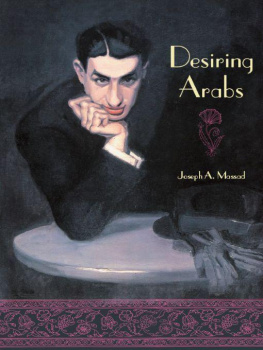
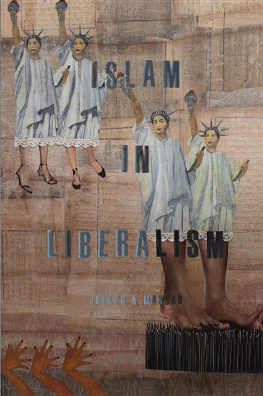

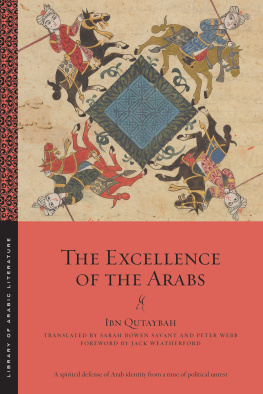
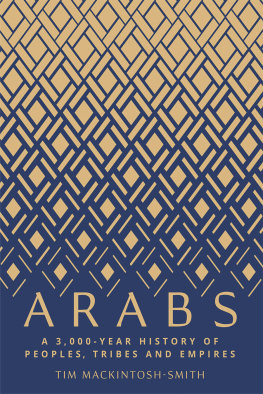
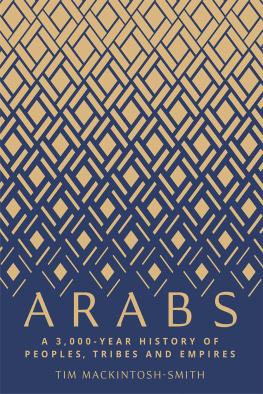
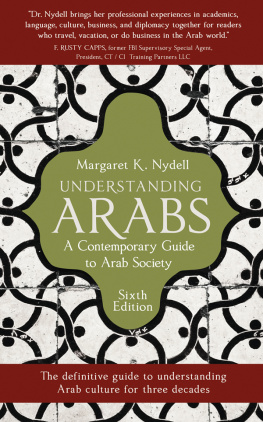
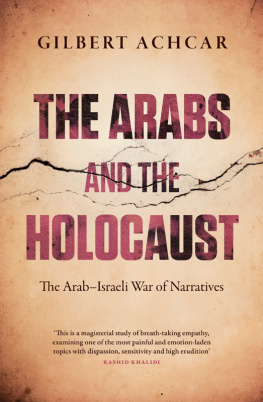

 The paper used in this publication meets the minimum requirements of the American National Standard for Information SciencesPermanence of Paper for Printed Library Materials, ANSI Z39.48-1992.
The paper used in this publication meets the minimum requirements of the American National Standard for Information SciencesPermanence of Paper for Printed Library Materials, ANSI Z39.48-1992.